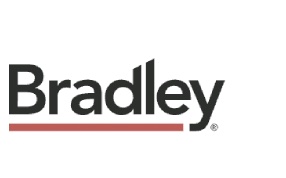It is important to note that advertising health services is subject to different regulations than advertising therapeutic products. Consequently, advertisers, manufacturers and sponsors must evaluate whether their business name could be interpreted as an advertisement for therapeutic goods. If so, they should consider whether the business name, including company or trading names, could be viewed as a ‘reference’ that draws the audience’s attention to medicinal cannabis, as any mention or similar terms to ‘cannabis’ are likely to have that effect. It is essential to recognise that the impact of promoting the use or supply of medicinal cannabis does not depend on a single promotional element but rather on the overall promotion. This includes all components of the promotional information and materials that accompany the name or branding. Advertising can result from the combination of separate statements, images or designs that collectively promote the use or supply of therapeutic goods.
Advertising
The prohibition on advertising medicinal cannabis to the public is determined by the context in which the material is perceived. When evaluating whether information about therapeutic goods qualifies as advertising, it is essential to consider the broader context of the material’s presentation. This encompasses various factors that influence the conveyed message, including the context of the information or activity, the intended audience and their likely interpretation of the message, as well as the presence of non-verbal and unwritten cues, such as visual elements. These factors can significantly affect communication and may alter the message perceived by consumers.
For example, if an advertisement for a health service, such as a pain treatment service, includes references to medicinal cannabis, even in the company name or trading name, a reasonable consumer may conclude that the advertisement seeks to promote both the use of medicinal cannabis for pain relief and the pain treatment service itself. Including a disclaimer, such as advising the consumer to consult a health professional regarding suitable treatment options, does not exempt the advertiser from complying with legislative requirements.
The distinction between promoting a health service and the therapeutic product utilised in its delivery can be nuanced. Therefore, it is crucial for advertisers to consider how a typical consumer might perceive their advertisement in relation to the promotion of the therapeutic product.
Legal Compliance
To ensure legal compliance in promoting a business or service, advertisers should focus on the health services they provide and avoid referencing medicinal cannabis. For instance, stating “Our clinic offers consultations related to pain management” is a more compliant approach. The Therapeutic Goods Administration’s interpretation of advertising for medicinal cannabis is broad, covering all methods of promoting its use or supply. This includes company names, product names, abbreviations such as CBD and THC, colloquial terms, and any imagery related to cannabis. Any combination of statements or images that implies medicinal cannabis can be considered advertising, even in the absence of explicit promotional language.
Summary
In summary, it is prohibited to mention prescription medications in advertisements for therapeutic goods. If content discusses health conditions and consumers can reasonably infer, either from the context or through direct or indirect references, that medicinal cannabis or any other prescription medication is intended for use concerning these conditions, the content may be deemed an unlawful advertisement for therapeutic goods. Not all information related to therapeutic goods is classified as advertising. However, if the content aligns with the definition of ‘advertise’ as outlined in the Therapeutic Goods Act 1989 (Cth)—which includes anything that is directly or indirectly intended to promote the use or supply of therapeutic goods—then the relevant legislative requirements for advertising such goods must be complied with.
“Indirect intent” in this context does not refer to the explicit intention of the party responsible for the content, but rather to what a reasonable consumer might infer as the intent behind the content. Terms such as “plant-based medicine,” “plant medicine,” “cannabidiol” and “CBD oil,” which relate to medical cannabis products, may be considered promotional if they suggest a connection to medicinal cannabis. Businesses promoting a health service must ensure they do not inadvertently advertise a prescription medicine in their marketing materials. If the consumer is encouraged to seek out a health service based on the therapeutic goods available, the content is likely to be regarded as an advertisement for those therapeutic goods.
For additional information, the Therapeutic Goods Administration has established the Medicinal Cannabis Hub, accessible at https://www.tga.gov.au/products/unapproved-therapeutic-goods/medicinal-cannabis-hub, and has also provided advertising guidance for businesses involved in the medicinal cannabis sector, which can be found at https://www.tga.gov.au/sites/default/files/advertising-guidance-businesses-involved-medicinal-cannabis-products.pdf. These resources are designed to assist both consumers and industry professionals in understanding their obligations.


 Cannabis News2 years ago
Cannabis News2 years ago
 One-Hit Wonders2 years ago
One-Hit Wonders2 years ago
 Cannabis 1012 years ago
Cannabis 1012 years ago
 drug testing10 months ago
drug testing10 months ago
 Education2 years ago
Education2 years ago
 Cannabis2 years ago
Cannabis2 years ago
 Marijuana Business Daily2 years ago
Marijuana Business Daily2 years ago
 California2 years ago
California2 years ago















